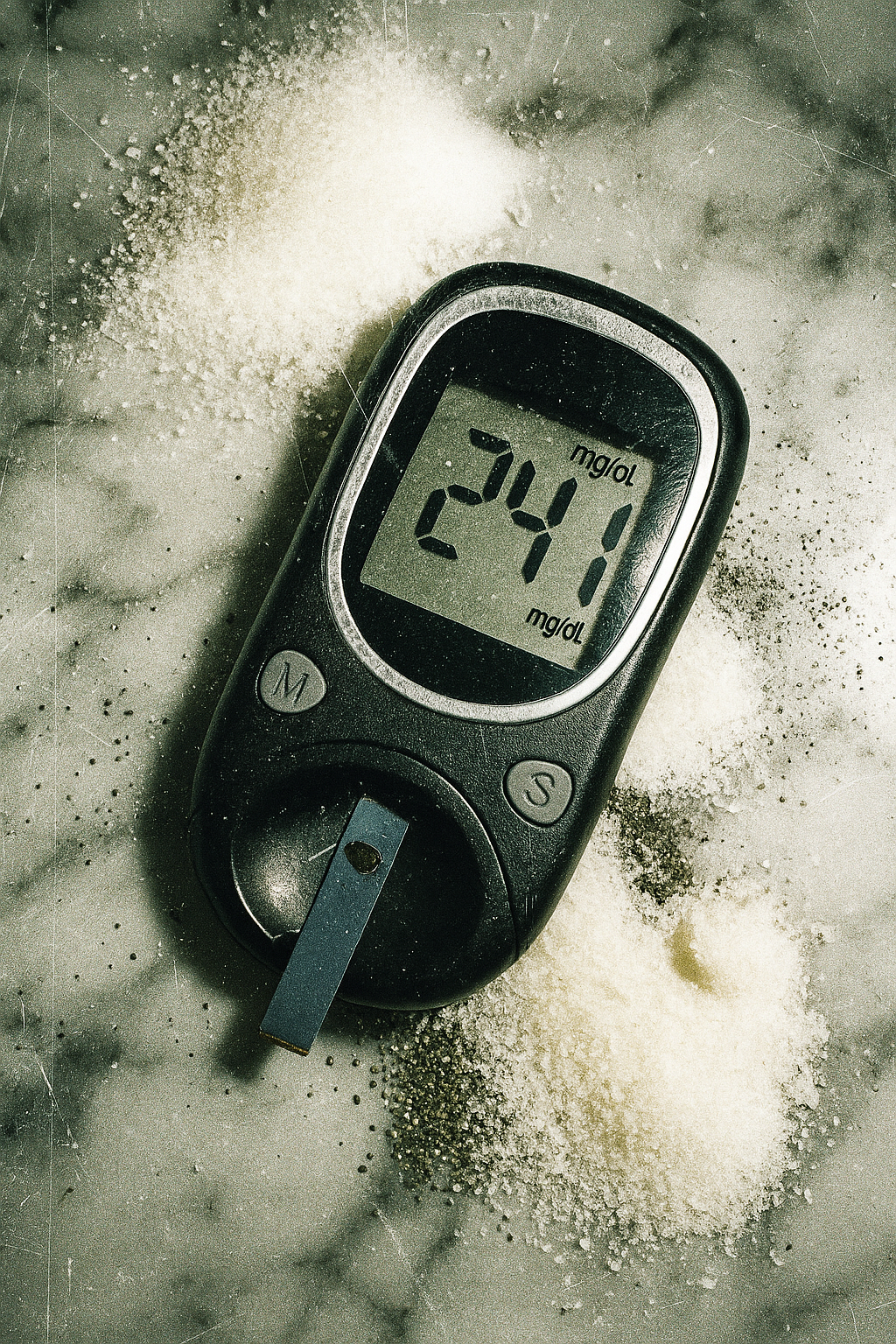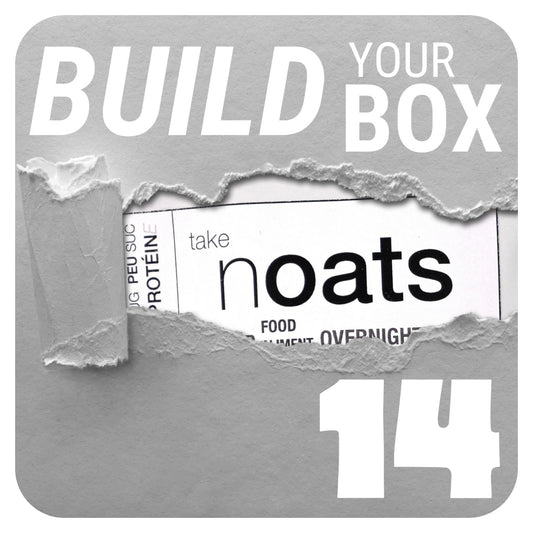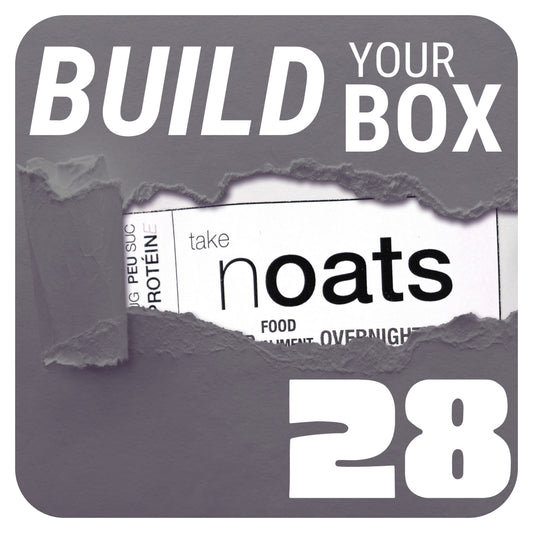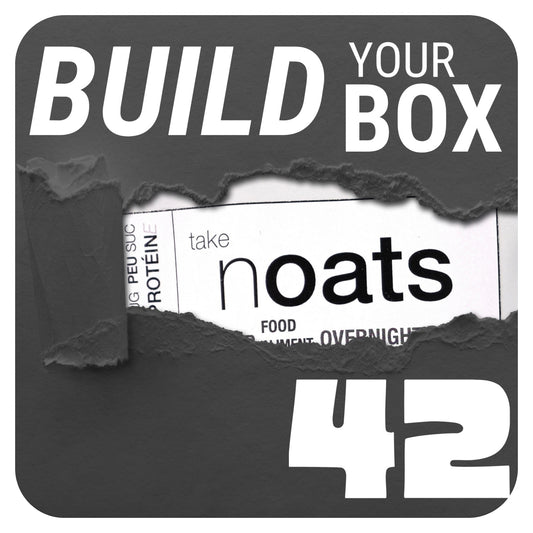Overview
Blood sugar has become a contemporary health concern. The discussion about how food affects our glycemic response is more prevalent than ever thanks to wearable glucose monitors and fasting glucose trends. Among the foods being examined? Oats overnight.
Overnight oats are widely regarded as the pinnacle of a nutritious breakfast due to their convenience and high nutrient content. But the question still stands: do overnight oats raise blood sugar levels for people who are concerned about glucose control, whether they are treating diabetes, insulin resistance, or simply looking for consistent energy?
The science underlying glycemic control and overnight oats will be examined in this article. We'll examine what the research actually says and move past diets based on fear. Because context is more important than just carbohydrates when it comes to blood sugar and oats.
Blood Sugar 101 and Carbohydrates
First, let's face it: not all carbohydrates are made equal. All carbohydrates eventually convert to glucose, but depending on the kind of carb, the food matrix, and the makeup of the meal as a whole, the rate and amount of this glucose release vary greatly.
Glycemic index (GI) and glycemic load (GL), two crucial concepts, enter the picture here. On a scale of 0 to 100, the GI indicates how quickly a food containing carbohydrates raises blood sugar. Glucose receives a perfect score of 100. However, the GL adds more complexity by accounting for the amount of carbohydrates in each serving.
Watermelon, for instance, has a high GI but a low glycemic load due to its low carbohydrate content per serving. When assessing foods like oats, this distinction is crucial.
Individual variability is an additional layer. Even if two people consume the same bowl of overnight oats, their glycemic reactions will differ greatly. A number of factors come into play, including genetics, the makeup of the gut microbiota, insulin sensitivity, time of day, sleep, stress, and even when to eat.
Focus on Oats
Oats are a superfood for nutrients. About 27g of carbohydrates, 4g of fibre (including the potent beta-glucan), 5g of protein, and a variety of vitamins and minerals, including manganese, magnesium, phosphorus, and B vitamins, are found in a half-cup of dry rolled oats.
However, not every oat is created equal.
The least processed and most time-consuming to cook are steel-cut oats. Because they are denser and digest more slowly, they have a lower glycemic index than whole oat groats.
Steamed and flattened, rolled oats are frequently used in overnight oats. Their GI is still moderate but a little higher. However, because of their quick digestibility, instant oats are more processed and have a higher glycemic impact.
The soluble fibre content of oats, particularly beta-glucan, is what makes them so special. This substance slows down digestion and lowers the rate at which glucose is absorbed by forming a gel-like substance in the gut. Beta-glucan has been demonstrated in numerous studies to reduce postprandial glucose spikes and enhance insulin sensitivity.
What Happens to Overnight Oats?
Overnight soaking softens the oats' structure and starts a mild fermentation process. Soaking enables a slower transformation of starches than cooking, which breaks them down quickly. The procedure can improve the bioavailability of certain nutrients and marginally decrease phytic acid, a substance that binds minerals.
Additionally, some studies indicate that soaking might boost the quantity of resistant starch, a form of carbohydrate that evades digestion and ferments in the large intestine, promoting gut health and possibly reducing the glycemic response.
In fact, soaking oats overnight may reduce their tendency to cause blood sugar spikes, particularly when combined with protein, fibre, or fats. However, the meal's overall composition will have a greater influence on the actual glycemic impact.
Ingredients Are Important: What You Put in Your Oats
The first step is a bowl of simple overnight oats. Your blood sugar can be made or broken by the toppings and mix-ins.
When added in large amounts, sweeteners like honey, maple syrup, or agave can quickly raise blood glucose levels. Fruits also differ; berries, especially blueberries and raspberries, are low-GI and high in polyphenols, while bananas and dates are high in natural sugars.
A more gradual glycemic rise is produced by slowing down the digestion and absorption of carbohydrates by including protein (Greek yogurt, whey protein, nut butters) and healthy fats (chia seeds, flaxseed, and almonds).
Analysis Based on Evidence: Do Overnight Oats Increase Blood Sugar?
Oats are a moderately glycemic food, according to clinical research. According to a 2016 review published in the journal Nutrients, oats—especially those high in beta-glucan—have a beneficial effect on glycemic control in both healthy and diabetic people.
Plain overnight oats typically have a lower glycemic impact than toast, instant oatmeal, or even traditional breakfast cereals, according to studies using continuous glucose monitors (CGMs). Individual metabolic responses and the presence of additional macronutrients, however, affect the outcomes.
If the oats are eaten by themselves, without any protein or fat, people with type 2 diabetes might have a greater spike. However, overnight oats can be a well-balanced, blood-sugar-friendly meal when carefully combined with stabilizing ingredients.
Portion control and timing
Just as important as what you eat is when you eat it. A more pronounced glucose response may result from consuming a significant amount of overnight oats late at night, when insulin sensitivity is lower.
Controlling portions is essential. Excessive blood sugar spikes can occur from even healthy carbohydrates. A serving of ½ to ¾ cup of dry oats (before soaking) is enough for the majority of people.
Oats are generally best eaten for breakfast, especially if you're going to be active afterward. Consuming food after exercise also increases insulin sensitivity and facilitates the body's better use of carbohydrates.
Customization and Blood Sugar Tracking
More people are discovering how their bodies react to various foods because of wearable technology like CGMs. Some people may experience a blood sugar spike from overnight oats, while others may not. This is individuality, not inconsistency.
Actionable insights can be obtained by tracking your reaction to overnight oats over a few days, ideally with consistent ingredients and portion sizes.
Useful Techniques to Reduce Blood Sugar Increases
A few minor adjustments can help keep blood sugar levels stable:
- To increase insulin sensitivity, add cinnamon.
- To lower post-meal glucose, take apple cider vinegar before meals.
- Consume foods high in protein or fibre first, then carbohydrates.
- To increase resistant starch, refrigerate your oats for at least 12 hours.
- These behaviours are evidence-based tactics with practical applications; they are not gimmicks.
Overnight Oats for Diabetics
Overnight oats can definitely be included in a balanced diet for people with diabetes. Careful assembly is crucial:
- Opt for rolled or steel-cut oats instead of instant.
- Steer clear of added sugars. Consume low-GI fruits in small amounts.
- Add healthy fats (like chia seeds) and protein (like plain Greek yogurt).
- Keep an eye on your blood glucose response and limit portion sizes.
- Post-meal spikes can be further decreased by combining oats with mild exercise, such as a morning stroll.
The Part Diet and Lifestyle Play
Your metabolic health is not defined by a single meal. Everything from sleep and stress levels to daily activities and general dietary patterns affects glucose control.
Insulin sensitivity is improved by exercise. It gets worse when you don't get enough sleep. A single "perfect" breakfast will never be as effective as a diet full of whole, minimally processed foods.
The goal is consistency, so don't let perfection stop you.
Myths and False Beliefs Regarding Overnight Oats
- "Sugar bombs are oats." Not true. Instead of added sugars, complex carbohydrates are found in oats.
- "They become high-GI after soaking." No. In fact, soaking might lessen the glycemic effect.
- "The only healthy breakfasts are keto ones." False. A blood-sugar-friendly diet can include whole grains.
Expert Views and Dietitian Perspectives
Most nutritionists concur that oats are a wise carbohydrate choice. The preparation is crucial.
Oats, particularly overnight oats, are frequently suggested by dieticians as a quick, inexpensive, and adaptable meal. Although customization is crucial, oats have a solid blood sugar stability record.
Examples of Blood Sugar-Stabilizing Overnight Oat Recipes:
- Chia and Cinnamon Berry Oats
- Blueberries, chia seeds, unsweetened almond milk, and rolled oats
- Cacao Oats and Almond Butter
- Peanut butter, cacao bits, chia seeds, oats, and a small amount of vanilla extract
- Avocado and Eggs with Flavorful Herbed Oats
- Bone broth-cooked oats with avocado slices, poached egg, and parsley on top
In conclusion
There is no inherent blood sugar issue with overnight oats. How they are prepared, what they are eaten with, and who is consuming them all affect their glycemic impact.
Overnight oats are the solution for blood sugar control, morning routine optimization, or simply wanting a breakfast that tastes as good as it fuels. And where should one begin? It's takenoats.
Our oats are not only convenient, but also smart nutrition in a pouch because they are made with clean ingredients, balanced macronutrients, and blood-sugar-conscious recipes.
FAQs
- Do steel-cut oats have a lower blood sugar impact than rolled ones? Indeed. Steel-cut oats digest more slowly and have a lower glycemic index.
- Is eating overnight oats every day acceptable? Yes, provided that it is balanced with healthy fats and protein. Even metabolic health can benefit from consistency.
- If I have prediabetes, should I stay away from oats? No. When modified for glycemic control, oats can be a beneficial whole grain.
- For stable blood sugar, when is the best time to consume overnight oats? Insulin sensitivity is at its peak in the morning or right after exercise.
- Is it possible to incorporate protein powder into my overnight oats? Indeed. It's a clever strategy to promote satiety and slow the release of glucose. You can skip this step because takenoats already contain a lot of protein.




